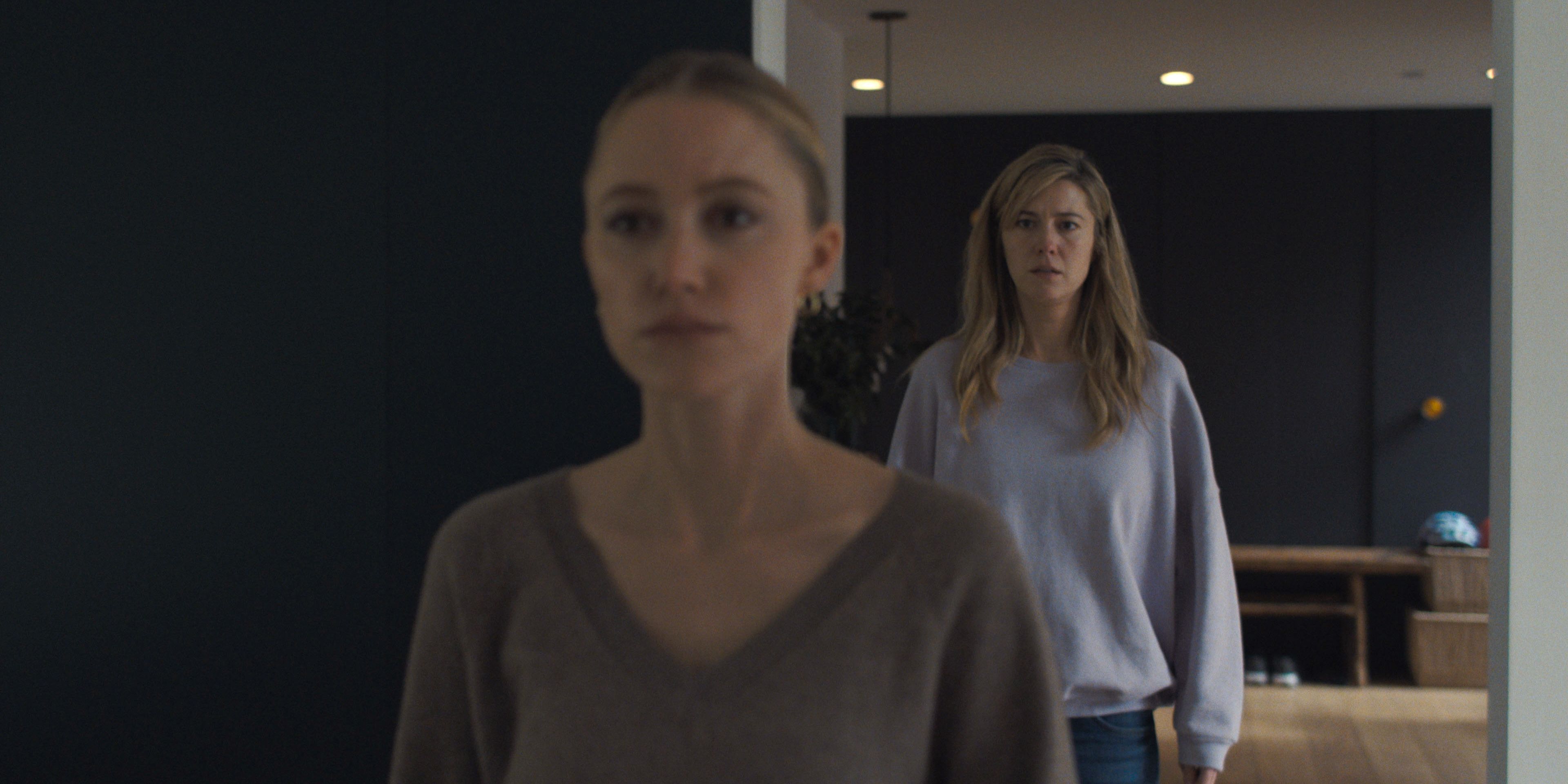
I don’t always mind remakes, especially if there’s a significant gap between versions, as long as the new one is well-made. However, that’s rarely the case, though some remakes are genuinely good. Hulu’s 2025 remake of the 1992 film isn’t particularly remarkable, but it’s decent – not terrible, but not amazing either. It’s just okay.
Michelle Garza Cervera directs this film, written by Micah Bloomberg, which centers on Caitlyn (Mary Elizabeth Winstead), a mother and lawyer. Caitlyn hires Polly (Maika Monroe) as a nanny, remembering Polly previously helped her with a problem involving her landlord. Maika Monroe’s performance immediately suggests something is off about Polly, though her reasons for taking the job, even with her reservations, aren’t fully explained until a key reveal later in the film.
The Hand That Rocks The Cradle Has Good, But Half-Formed, Ideas
The movie The Hand That Rocks the Cradle creates a brief connection between Polly and Caitlyn before quickly shifting to Polly manipulating and deceiving Caitlyn. This conflict continues for some time, but eventually loses its impact. Throughout the film, we learn more about both women: Caitlyn previously had a relationship with a woman and experienced postpartum depression after the birth of her daughter, Emma, though this is only mentioned to explain why people don’t believe her claims about Polly. Polly, on the other hand, grew up as an orphan in the foster care system.
While the movie builds tension slowly, the final confrontation between Caitlyn and Polly feels disappointing and lacks sufficient development. A key revelation happens too late, hindering our understanding of Polly’s motivations and Caitlyn’s character. The film attempts to explore how childhood trauma can manifest in adulthood and how women sometimes direct their anger towards each other instead of their actual abusers. Although it touches on these important themes, it doesn’t delve into them deeply enough.
The movie The Hand That Rocks the Cradle hints at a possible sexual connection between characters, and includes a scene where Caitlyn observes Polly with another woman. While this feels like voyeurism, the idea is quickly abandoned. It might be intended to suggest Caitlyn’s own strong attraction to Polly – which appears several times – but it never really develops into anything significant.
The film also hints at differences in the characters’ social and economic backgrounds, which become more noticeable later on, particularly in how similar experiences can lead to very different outcomes for people. It’s frustrating, though, that these interesting aspects aren’t fully developed. Like Caitlyn’s history with postpartum depression, they’re presented as ideas that are touched upon but never fully explored.
Despite its flaws, Cervera’s film remains consistently interesting, largely thanks to the strong connection between Winstead and Monroe. Their believable chemistry and performances help to overcome a somewhat weak script and a story that starts with promise but ultimately loses momentum.
This movie will grab your attention simply because you’ll be desperate to find out what happens. You’ll wonder what Caitlyn is concealing, why Polly is so obsessed with her, and if Polly might harm the children as a way to get to Caitlyn. Despite some underdeveloped parts, the film keeps you hooked with its intriguing mystery and the hope that it will all pay off – it’s a shame the filmmakers didn’t seem willing to take bigger chances with the story.
Read More
- 10 Best Horror Shorts on YouTube for a Quick Scare
- 1 Major ‘Captain America 4’ Villain Was Originally Supposed to Die
- Доллар обгонит гривну? Эксперты раскрыли неожиданный сценарий
- 10 Must-Watch Horror TV Shows for Mike Flanagan Fans
- Золото прогноз
- 10 Apple TV Shows That Outshine Netflix Originals in Quality
- 10 Most Disappointing Biopics of Beloved Musicians
- 10 Best ‘Naruto’ Filler Episodes
- Доллар обгонит бразильский реал? Эксперты раскрыли неожиданный сценарий
- 10 Devastating Buffy Episodes Fans Struggle to Rewatch
2025-10-23 18:38